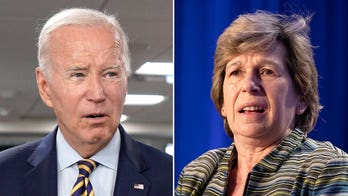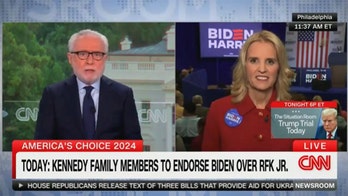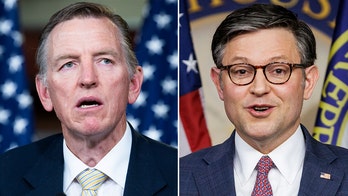
A view of Las Vegas. Roughly 2,000 housekeepers, waiters and others at nine of 10 downtown Las Vegas casinos have voted to go on strike June 1 if they don't reach agreements on a series of issues, the thorniest of which involve new ObamaCare-related cost increases, according to the union. (Foxnews.com)
Disputes between unions and employers over paying for new costs associated with the Affordable Care Act are roiling labor talks nationwide.
Unions and employers are tussling over who will pick up the tab for new mandates, such as coverage for dependent children to age 26, as well as future costs, such as a tax on premium health plans starting in 2018. The question is poised to become a significant point of tension as tens of thousands of labor contracts covering millions of workers expire in the next several years, with ACA-related cost increases ranging from 5 percent to 12.5 percent in current talks.
In Philadelphia, disagreement over how much workers should contribute to such health-plan cost increases has stalled talks between the region's transit system and its main union representing 5,000 workers as they try to renegotiate a contract that expired in March.
Roughly 2,000 housekeepers, waiters and others at nine of 10 downtown Las Vegas casinos voted this month to go on strike June 1 if they don't reach agreements on a series of issues, the thorniest of which involve new ACA-related cost increases, according to the Unite Here union.
Flight attendants at Alaska Airlines voted down a tentative contract agreement with management in February, in part because it didn't provide enough protection against a possible surge in ACA-related costs, union members said. They are still without a new contract.
Labor experts on both sides say the law doesn't take into account that health benefits have been negotiated by employers and unions over decades, and that rewriting plans to meet new requirements can affect wages and other labor terms.
"It's been a challenge for even some of the stronger unions to maintain the quality health plans that they have offered over the years," said Daniel Murphy, an attorney in New York who represents employers in labor talks.
Among the earliest supporters of the health-care law, unions have unsuccessfully tried to win concessions from the Obama administration on some issues now involved in the labor talks.
An Obama administration official said: "We have worked hard to smooth implementation" of the health law.
One pressure point is the higher costs of new mandates, especially the requirement that health plans expand coverage for dependents. For Unite Here, adding that coverage for 14,000 dependents raised costs in the health-care fund run by the union's Las Vegas local by $26 million since 2011, said union spokeswoman Bethany Khan.
The union plan covers 55,000 workers and 120,000 people in total. Casinos on the Strip have agreed to pay more to meet the higher health-care costs, according to contract summaries. Unite Here President D. Taylor called the rising costs tied to the health law the biggest hurdle to reaching settlements in Las Vegas.




